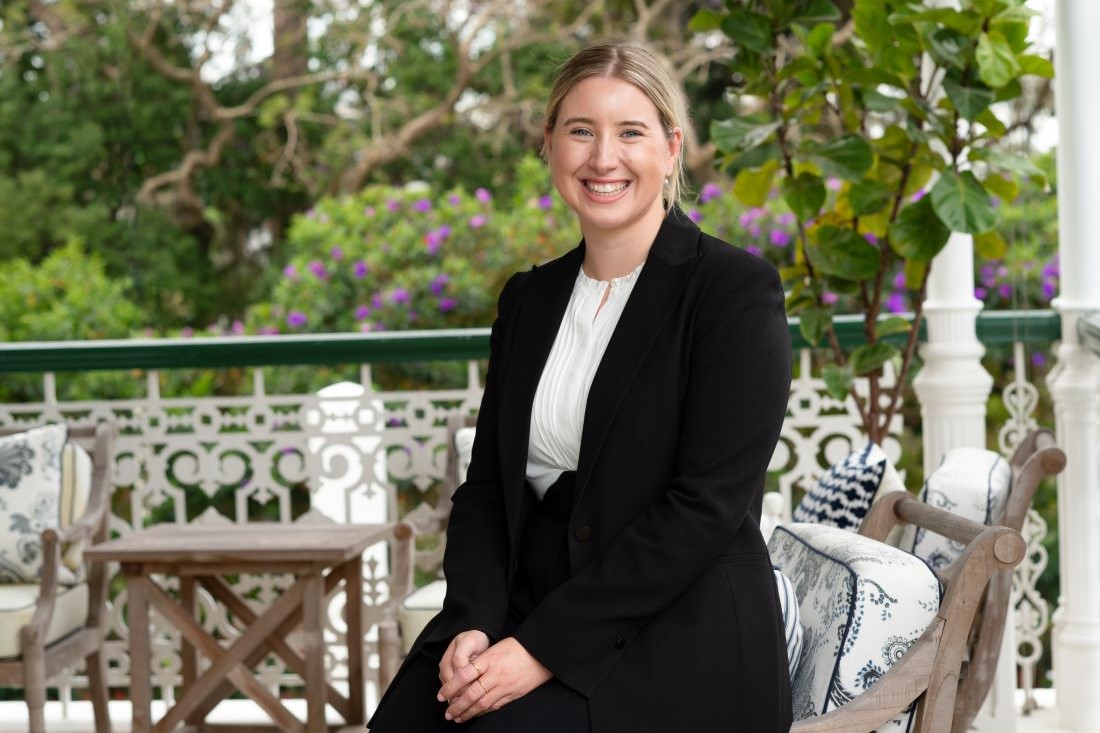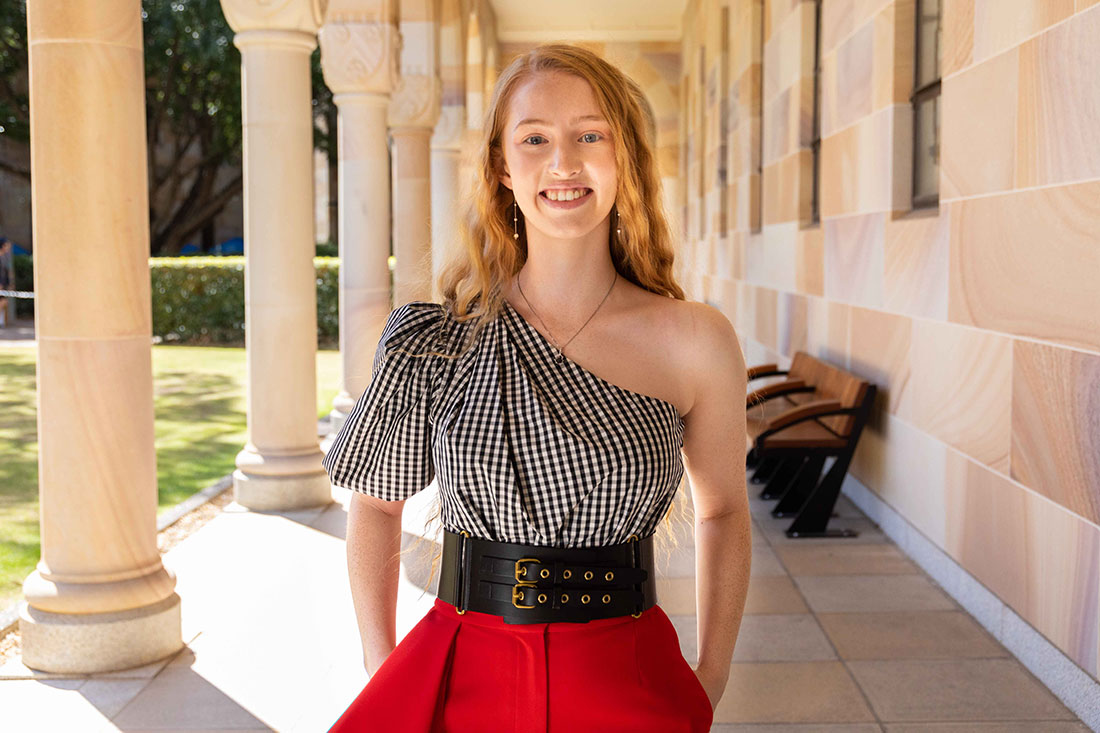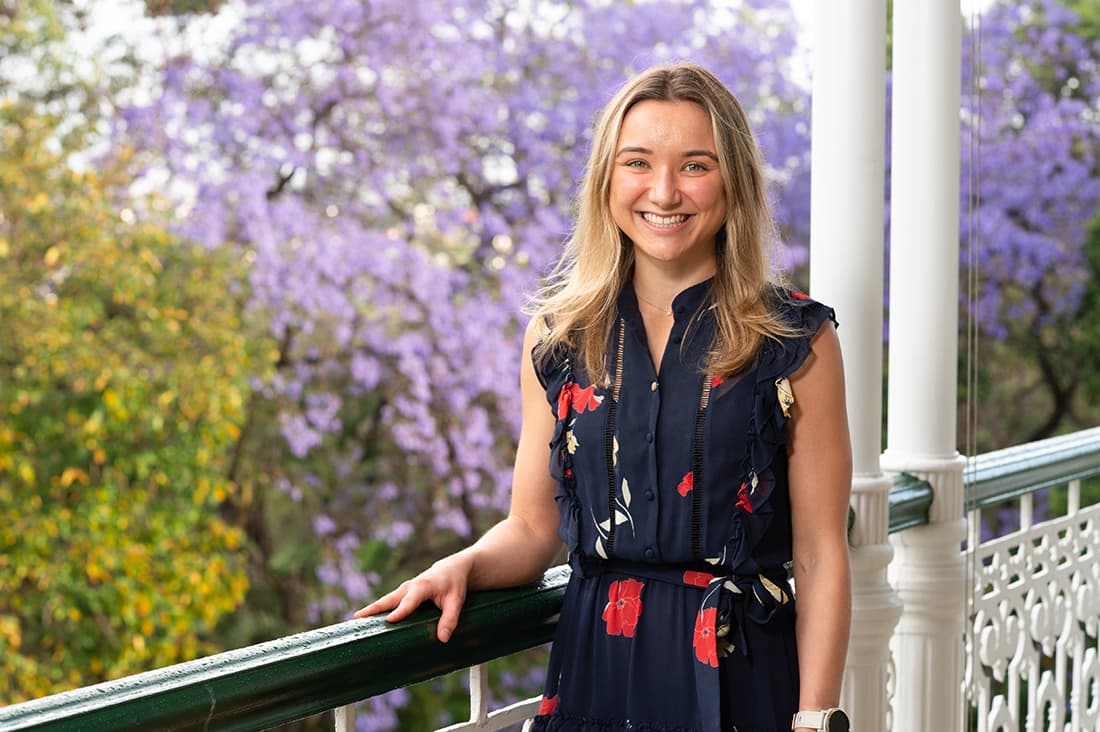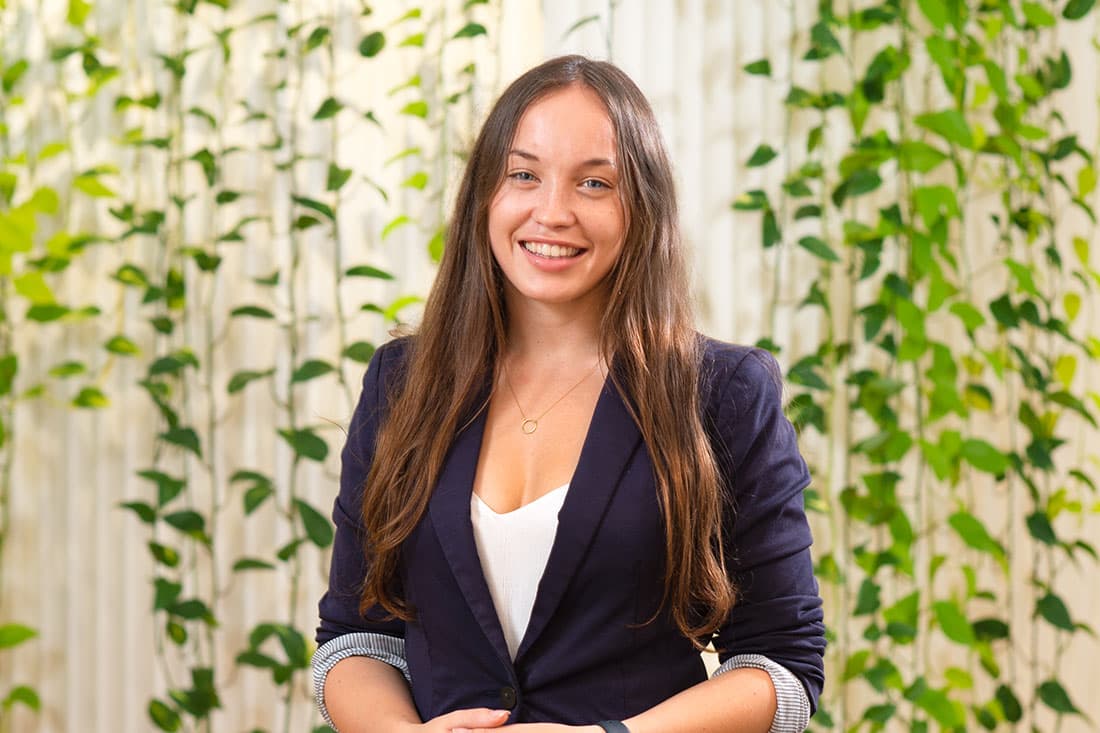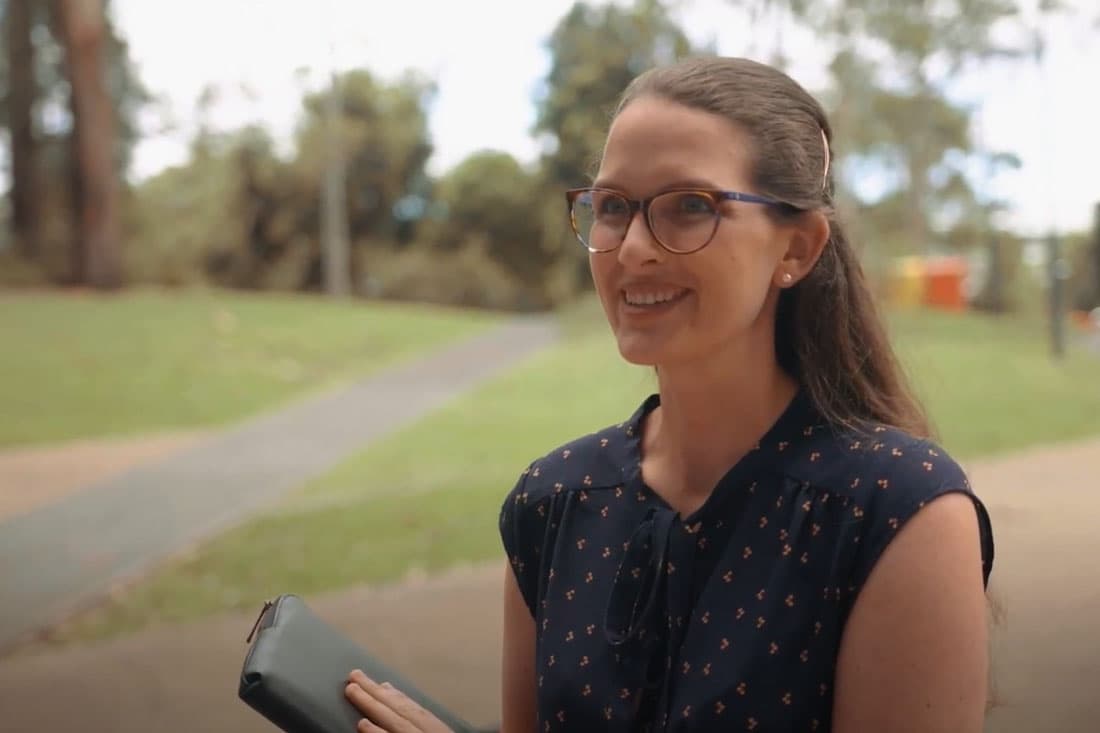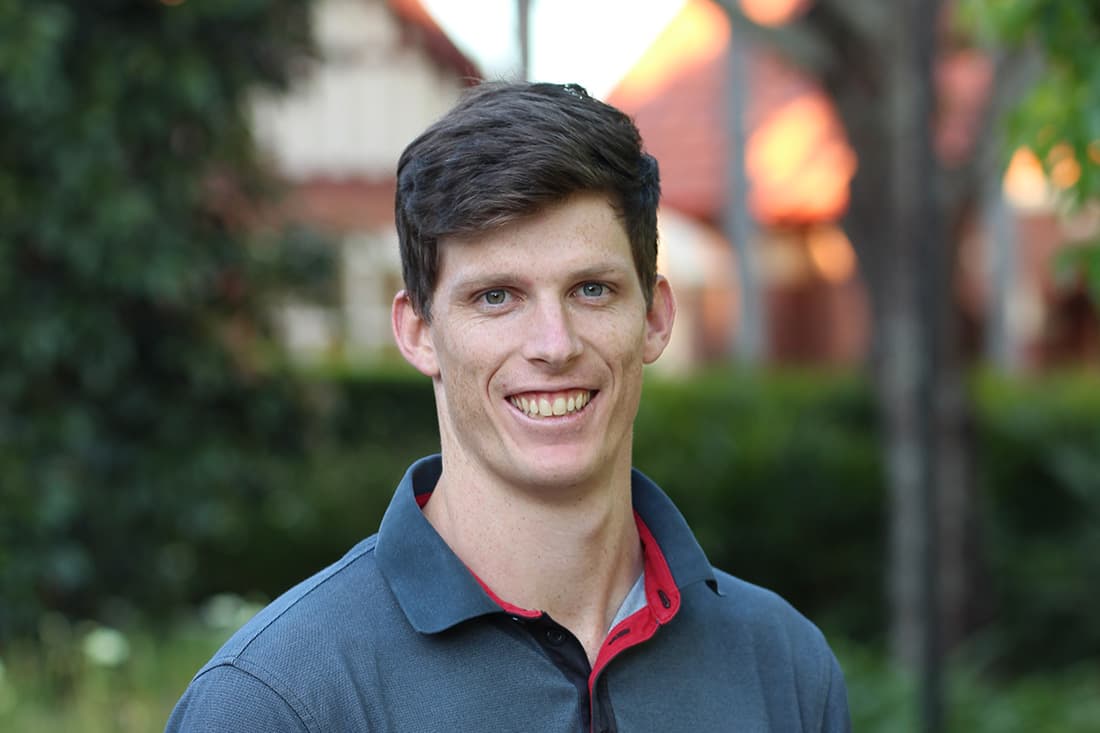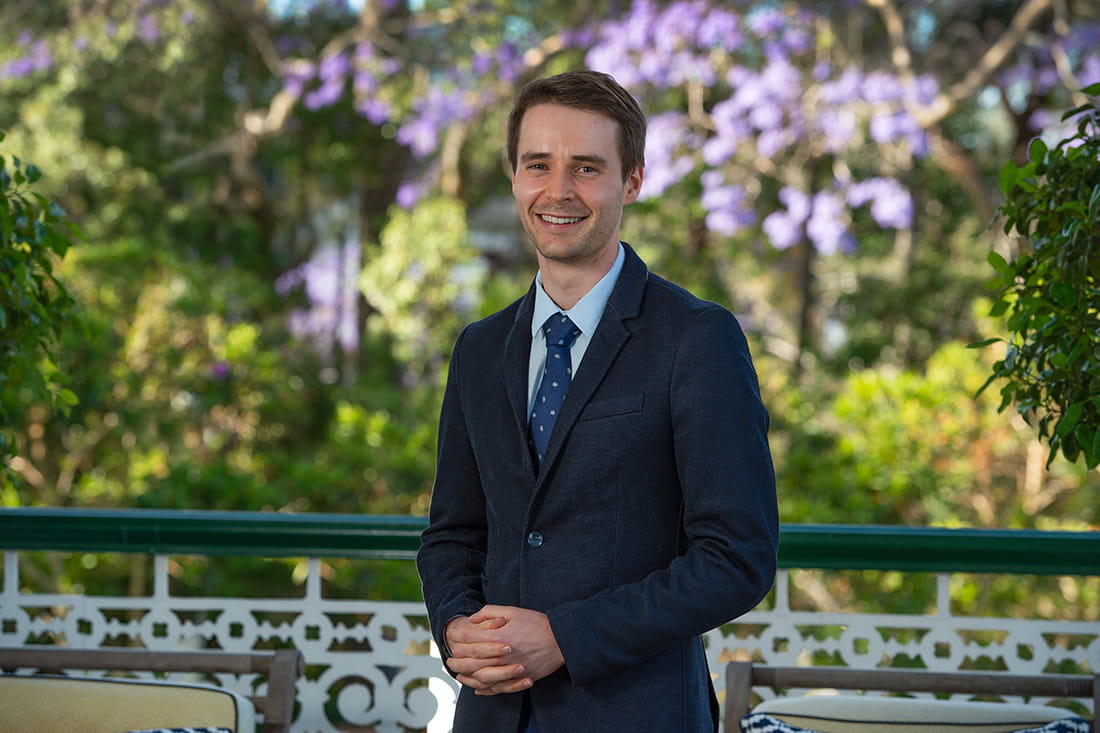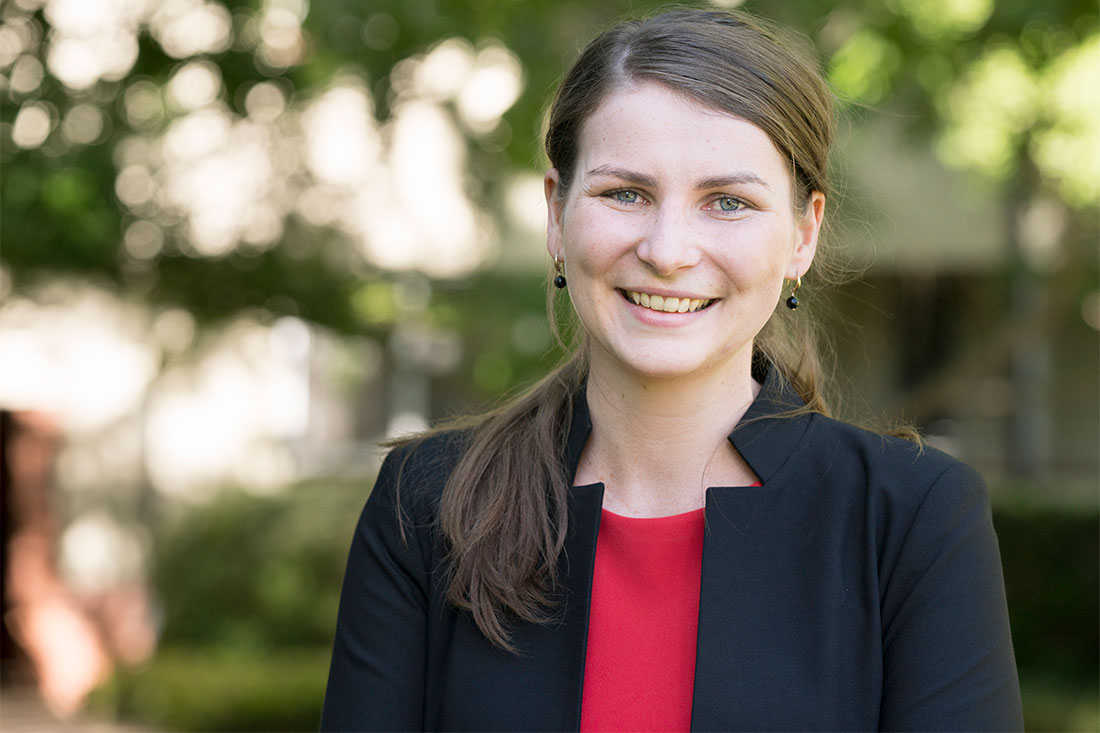2025 Queensland Rhodes Scholar
Matisse Reed graduated from UQ with her Bachelor of Arts/Bachelor of Laws (Hons) in 2023 with a GPA of 6.9 and was awarded the University Medal in Law and the UQ Law Society Medal for Outstanding Achievement. She will use her Rhodes Scholarship to pursue postgraduate studies in law and public policy at the University of Oxford from 2025, with a focus on international humanitarian and human rights law. She has done extensive research on the criminalisation of migration, including co-authoring a paper analysing global ‘crimmigration’ policies in light of international laws governing the rights of children.
2024 Queensland Rhodes Scholar
Jeremy Hunt holds a Bachelor of Science (Computer Science/Biomedical Science) from the University of Queensland (UQ) and is currently in his final year of a Doctor of Medicine at UQ. He is the founder and CEO of the VacSeen Project, a registered charity that provides free pop-up vaccination clinics and health services for people experiencing homelessness and other at-risk groups.
He will use his Rhodes Scholarship to study public policy and applied digital health at the University of Oxford.
2024 Australia-at-Large Rhodes Scholar
Emerald Gaydon is a Bachelor of Science Honours (Physics) student at the University of Queensland. An advocate for women in STEM, she also works internationally as a science communicator with STEMPunks and leads the UQ Science Demo Troupe.
She plans to use her Rhodes Scholarship to study a PhD in materials. She will research the application of material science and nanoscale engineering to neuromorphic computing.
2023 Queensland Rhodes Scholar
Josephine Auer holds a Bachelor of Advanced Finance and Economics (Hons) and a Bachelor of Mathematics from the University of Queensland. Ms Auer has supplemented her studies working as an analyst for a not-for-profit economic research institute and as a volunteer with the policy team of the Citizens Climate Lobby. She plans to complete a two-year Master of Philosophy (Economics) at the University of Oxford and looks forward to using her skills as an economist to work in partnership with leaders in a diverse range of fields to create transformative climate change policies that chart a more sustainable and safer future for all.
2022 Queensland Rhodes Scholar
Tahlia Smith holds a Bachelor of International Studies and a Diploma of Languages from University of Queensland. At Oxford, she plans to complete a MPhil in International Relations. Ms Smith is multi-lingual and has worked for French Government in education, the Ecuadorian Government in diplomacy and the Australian Government in counter-fraud and international trade. Working as a public servant during the COVID-19 pandemic gave her a deep understanding of the critical importance of effective public policy and international collaboration during times of uncertainty. She will use the knowledge and skills gained at Oxford to address complex public policy challenges in Australia.
2022 Australia-at-Large Rhodes Scholar
Kathryn Woodward holds a Bachelor of Medical Science with Distinction and will complete her Doctor of Medicine degree from Griffith University in 2022. She has been elected a 2022 Australia-At-Large Rhodes Scholar and intends to complete an MSc International Health and Tropical Medicine followed by MSc Comparative Social Policy at Oxford. Ms Woodward is passionate about public health and its focus on improving the health of entire populations. She is Deputy Chair of CanTeen Australia and has held leadership and volunteer roles with the Australian Medical Students’ Association, Children’s Health Queensland, Consumer Health Forum of Australia, and Youth Cancer Services.
2021 Queensland Rhodes Scholar
Justin Clarke will graduate from University of Queensland in 2020 with a Bachelor of Engineering (Honours) Science (Mathematics, Mechanical and Aerospace Engineering) with a primary focus on computational fluid dynamics and hypersonics and a Bachelor of Science (Mathematics). He plans to complete a DPhil in Engineering Science at Oxford’s Thermofluids Institute to model hypersonic (speeds much greater than the speed of sound) pulse tunnels. Mr Clarke is a former elite level AFL professional sportsperson and has been employed at Boeing Defence Australia as a student engineering intern. He is an assistant coach for the Western Magpies and a Queensland Brain Institute Concussion ambassador
2020 Queensland Rhodes Scholar
Nicholas Salmon, a graduate from The University of Queensland and a process engineer, was Queensland’s 2020 Rhodes Scholar. Nicholas is a keen debater and has held senior roles in debating, including as President of the Australian Debating Federation. He is also a violinist with the Brisbane Philharmonic Orchestra.
2020 Australia-at-Large Rhodes Scholar
This is the third consecutive year that a Queenslander has been the recipient of the Australia-at-Large Rhodes Scholarship. Ms Sophie Ryan holds a Bachelor of Arts and Bachelor of Laws (Peace and Conflict Studies/Studies in Religion) from The University of Queensland. Ms Ryan is the first graduate from St Ursula’s College (Toowoomba) to become a Rhodes Scholar. While at Oxford Ms Ryan intends to study a Bachelor of Civil Law and Master of Philosophy in Law.
